Knog Blinder Square and V Bolt rear light review - more flashing LEDs than a school electronics project
A smart and compact rear light with easy fitting, convenient charging and more fancy flashing than you thought possible
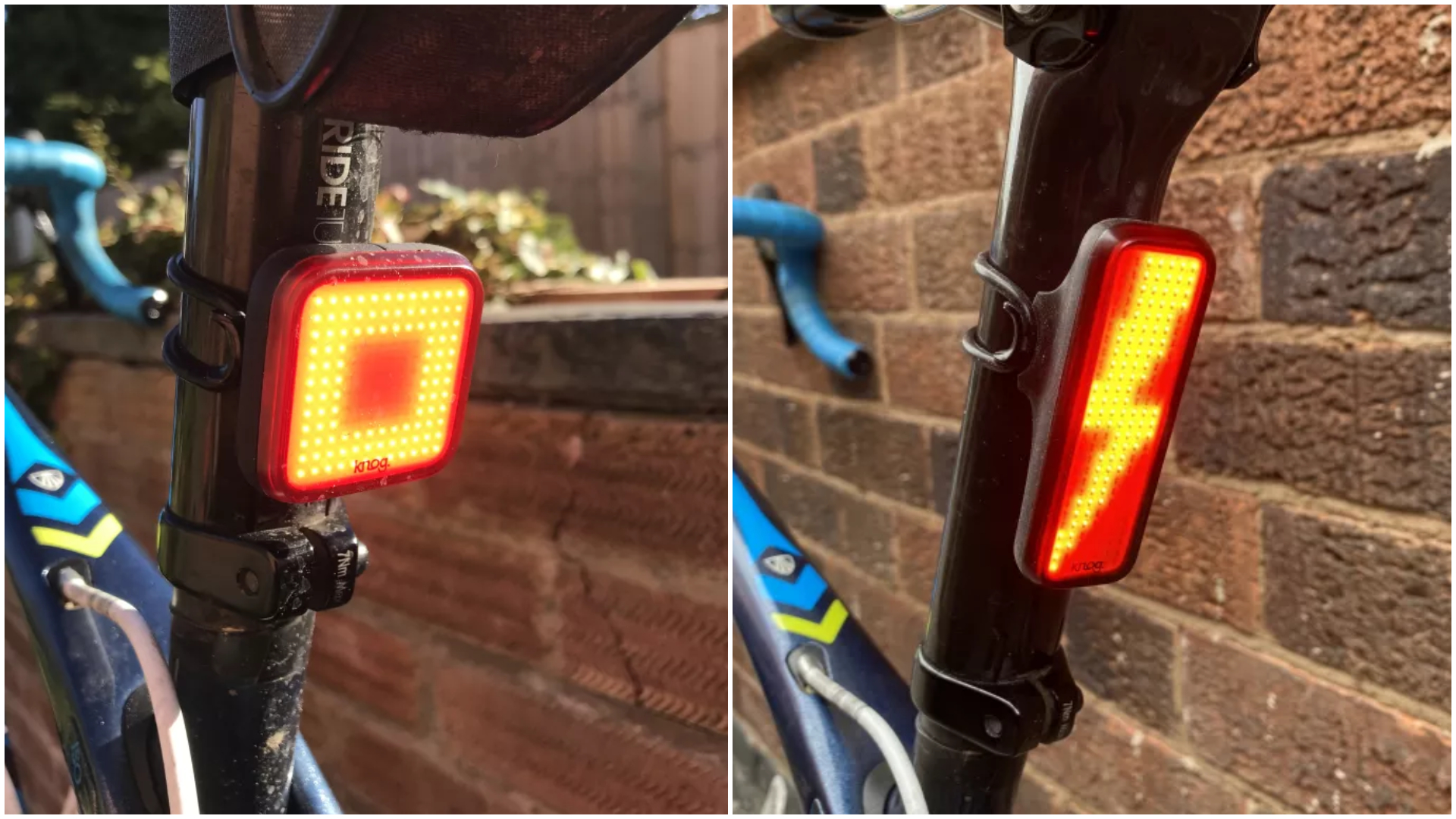
The Knog Blinder rear lights are bright, neat and tidy. The mass array of different light patterns and flashing programmes makes the Blinders a fun and quirky option, even if they don't offer much of practical use. More usefully, they come with an excellent mounting system which is easy to use and holds nice and tight, and a direct USB-A connector for cable-free charging.
-
+
Squares! Lightening! Lots of flishy-flashing!
-
+
Compact and neat
-
+
Easy fitting
-
-
On / off button a bit hidden
-
-
Indicator light a little too discrete
-
-
Too many programmes makes tracking run time tricky
-
-
Need to change fitting band for different sized posts
You can trust Cycling Weekly.
The Knog Blinder rear lights have a sense that someone has thought about both the form and function. Just like some of the other newer rear lights, these use Chip On Board (COB) LEDs to keep the weight low and brightness high.
We tested the standard Blinder Square rear light alongside the longer V Bolt version. They’re neat, compact and have a sense of quality as well as hosting a myriad of different flash patterns in funky shapes. Is this enough for the Blinders to stand up to the rest of the best bike lights competition?
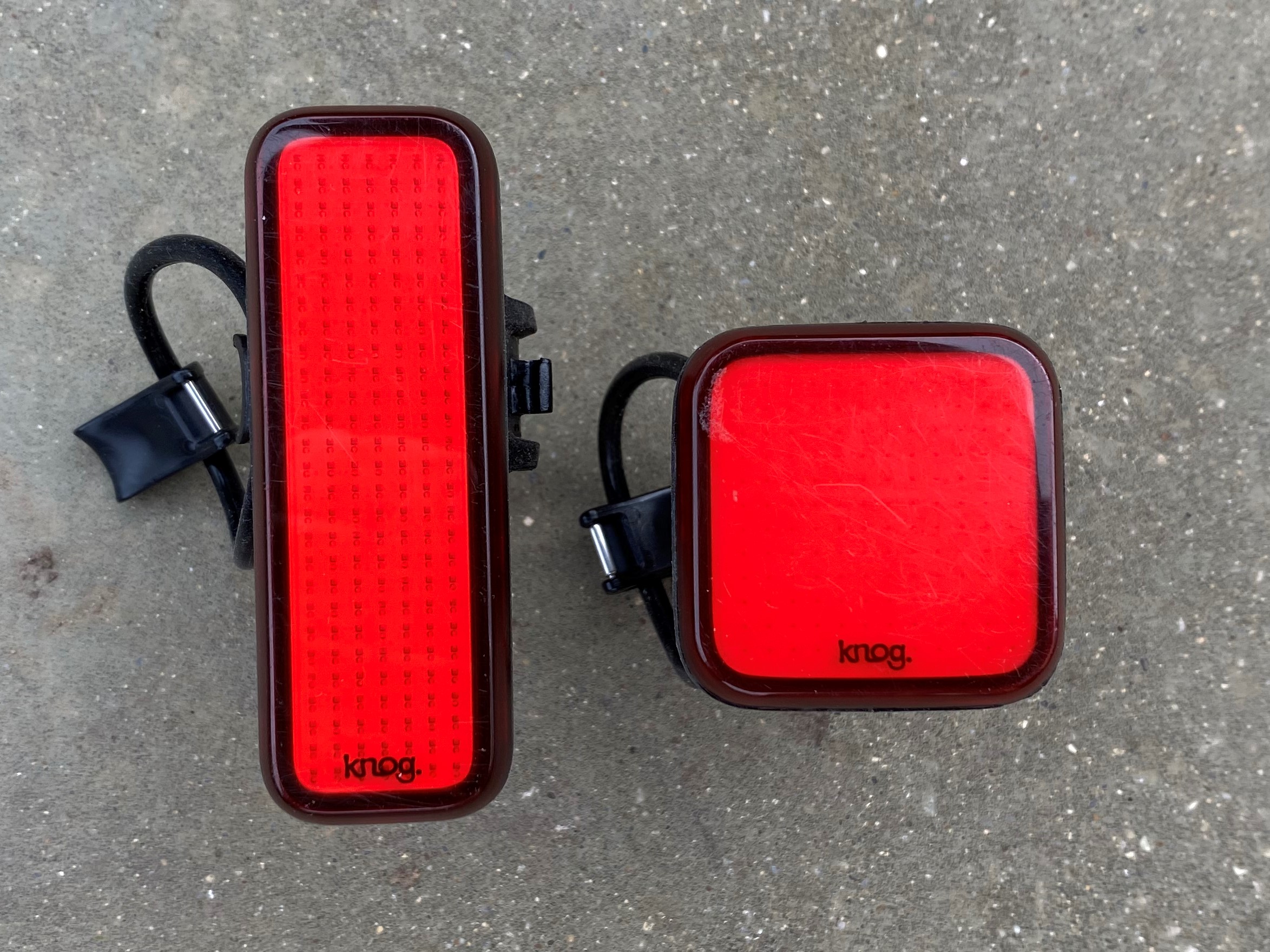
Knog Blinder V and standard rear lights
Knog Blinder rear light: design and mounting
Both the Blinder Square and Blinder V Bolt feel really neat and compact lights. The standard, square-shaped model measures 40mm square and the longer V model 75x25mm. Including fittings, they weighed in a 34g and 42g respectively.
The Blinders mount directly to your bike with the grippy rubberised underside of the light holding firmly to a range of seat post diameters and aero shaped posts too. There’s a really simple and effective little clasp that clips the band onto the light - it’s by far the easiest and most secure light fitting I’ve ever used.
On the downside, you need to swap over the bands for different sized seat posts which can be a bit of a pain if you have a wide range of post diameters like I do.
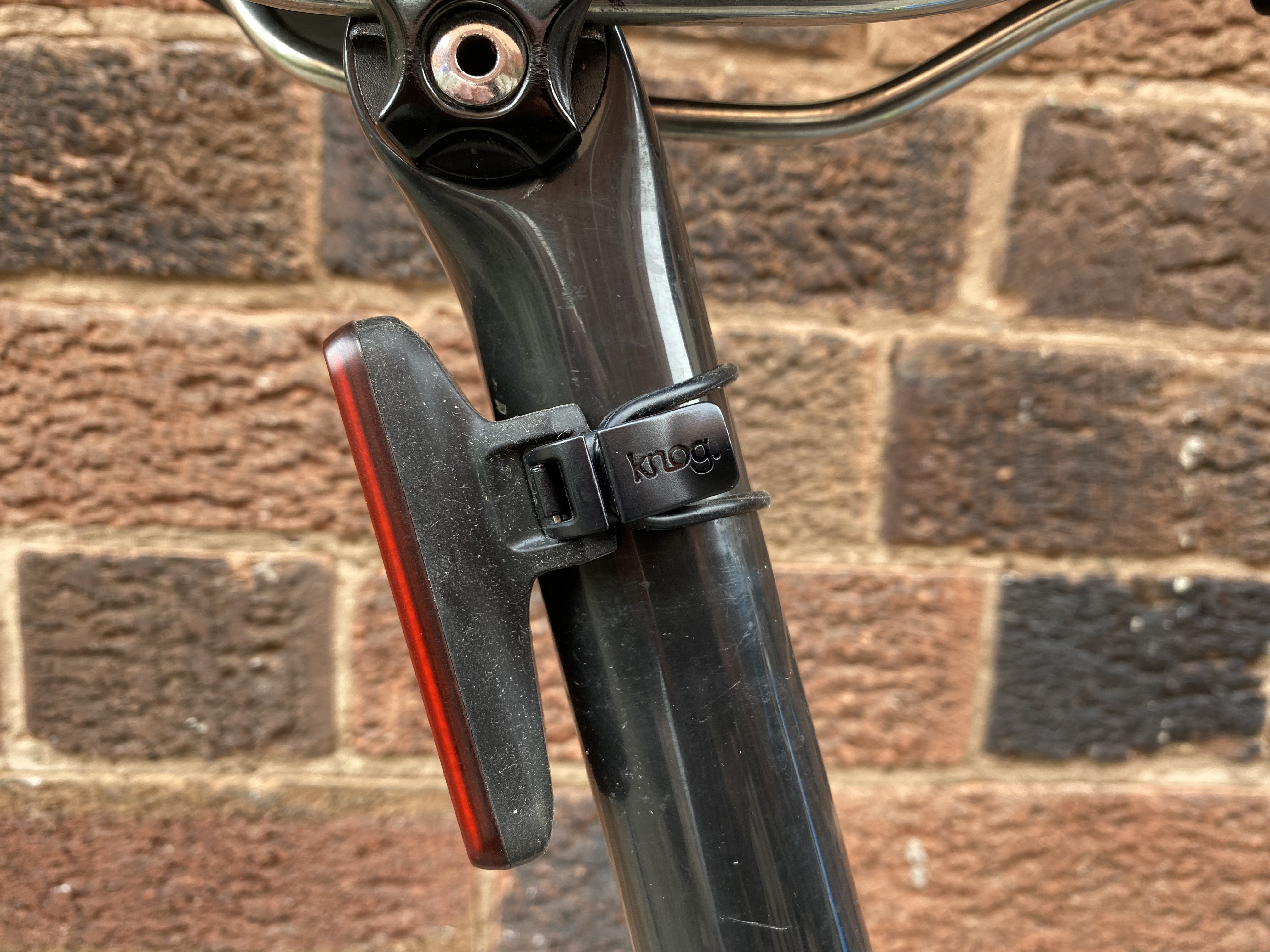
Knog Blinder rear light mounting band and clasp which is really effective and easy to use
One of the more unusual features of the Knog Blinder is the integrated USB-A connector which forms part of the fitting. This connector allows you to plug your light straight into a USB port without a wire and there are no port covers to lose or connections to get water into.
It does feel like the contacts are a bit too exposed to the elements and there’s a little wear on one of the lights already but it’s performed without any issues so far so perhaps it’s more robust than it looks (and Knog has a two-year warranty if not).
The latest race content, interviews, features, reviews and expert buying guides, direct to your inbox!
One drawback of this design is that it can make it difficult to see the indicator lights when the Blinder is on charge; most of my USB sockets seemed to hold the light the wrong way round to see it especially the Square version where the indicator light was on the side.
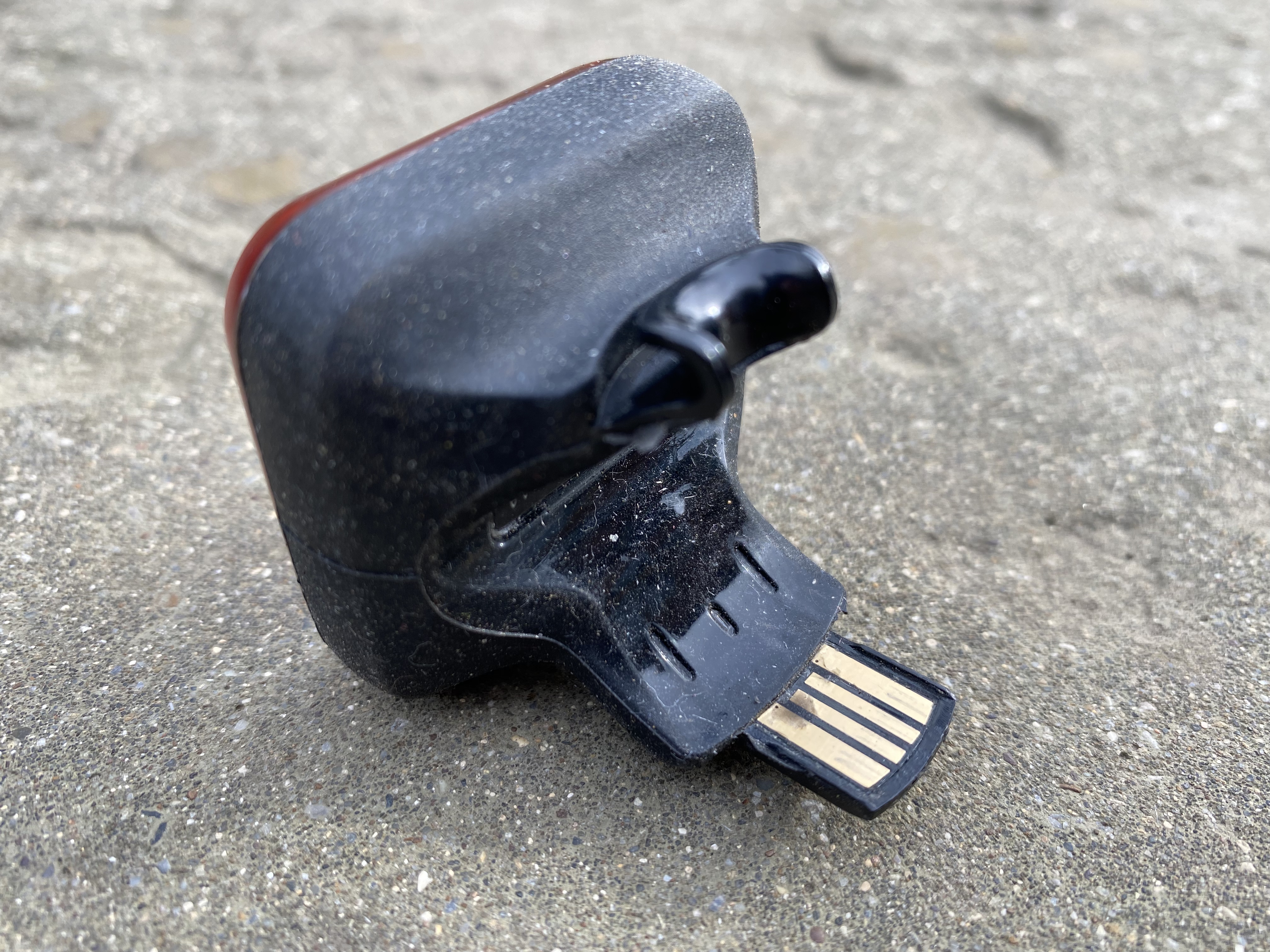
Knog Blinder has an integrated USB-A connection for charging
Knog Blinder rear light: lights and action
Each of the Blinders has eight different light modes, some flashing and some steady. As to why you need six flashing (of various combinations of pattern speeds and shapes) and two different steady options I’m not entirely sure. Given the standard Blinder comes in square, alien or grid patterns and the V in ‘traffic’ or ‘electric flash’ there’s even more light patterns to think about.
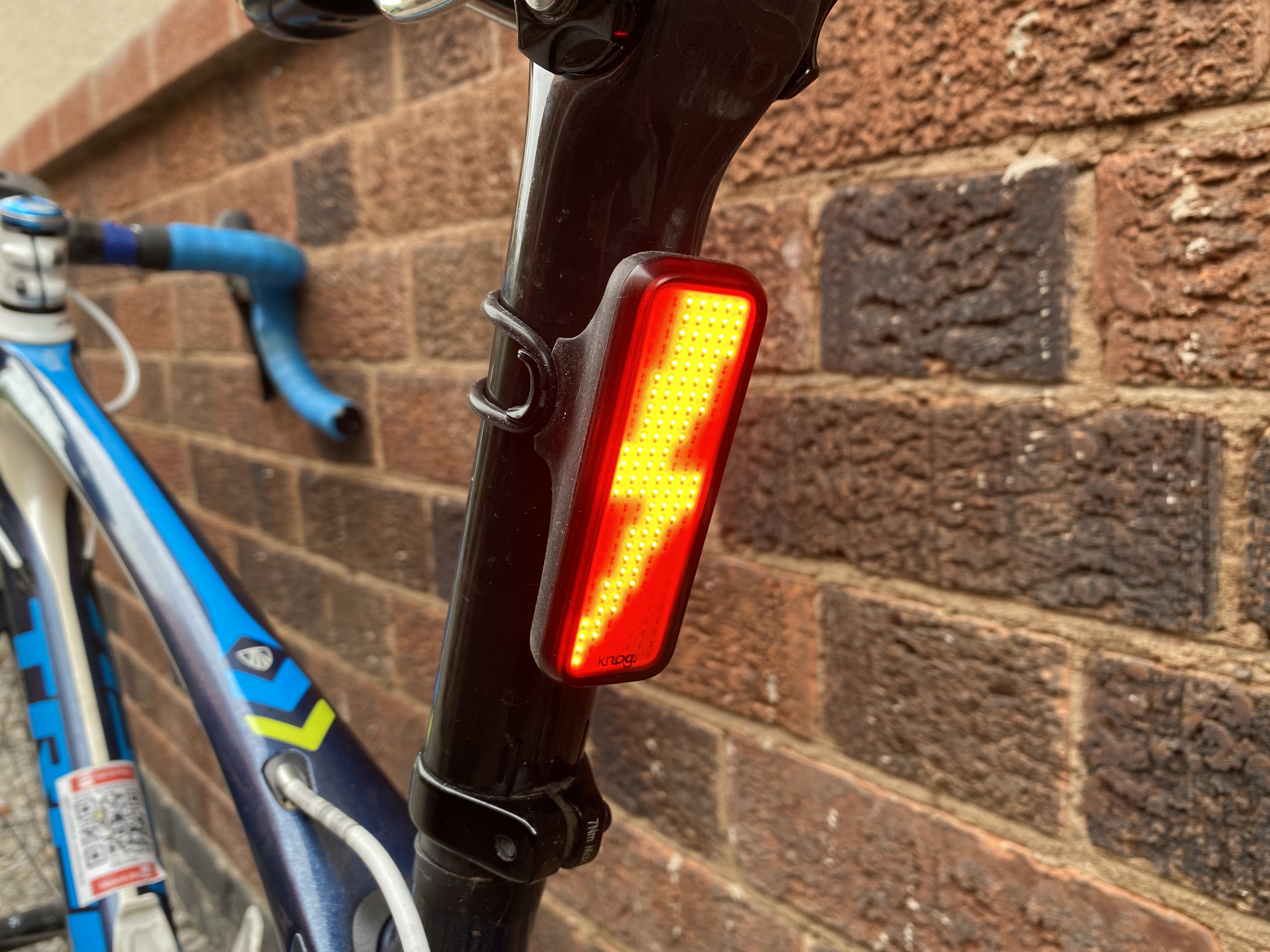
Go faster lightening
The dizzy array of light programmes feel more like something that you’d be proud of wiring together during a school electronics project than a useful feature on a bike light. If you needed, you could use the different programmes to extend the run time of your light (4.5hrs or 8hrs steady; 5-50hrs flashing) but I wouldn’t be confident I was selecting the right one without going back and checking the online chart each time.
It also means you need to scroll through a few different patterns to switch from flashing to solid – although it does turn back on to the last pattern you used, so you don’t need to scroll through them all every time. But, despite my cynicism, riding with a flashing ‘electricity’ light has obviously made me a much more awesome rider (as yet an unverified claim).
The Blinder has 100 lumens of output which is a good amount for a rear light although there are many others that now boast more. Of course, the output is also dependent on which mode you’re using. On full, the standard Blinder Square is visible at a claimed 450m and the larger V model at 900m.
There’s some lateral light emission but this isn’t huge and certainly nothing in comparison to lights such as the Moon Cerebus or CatEye Viz300.
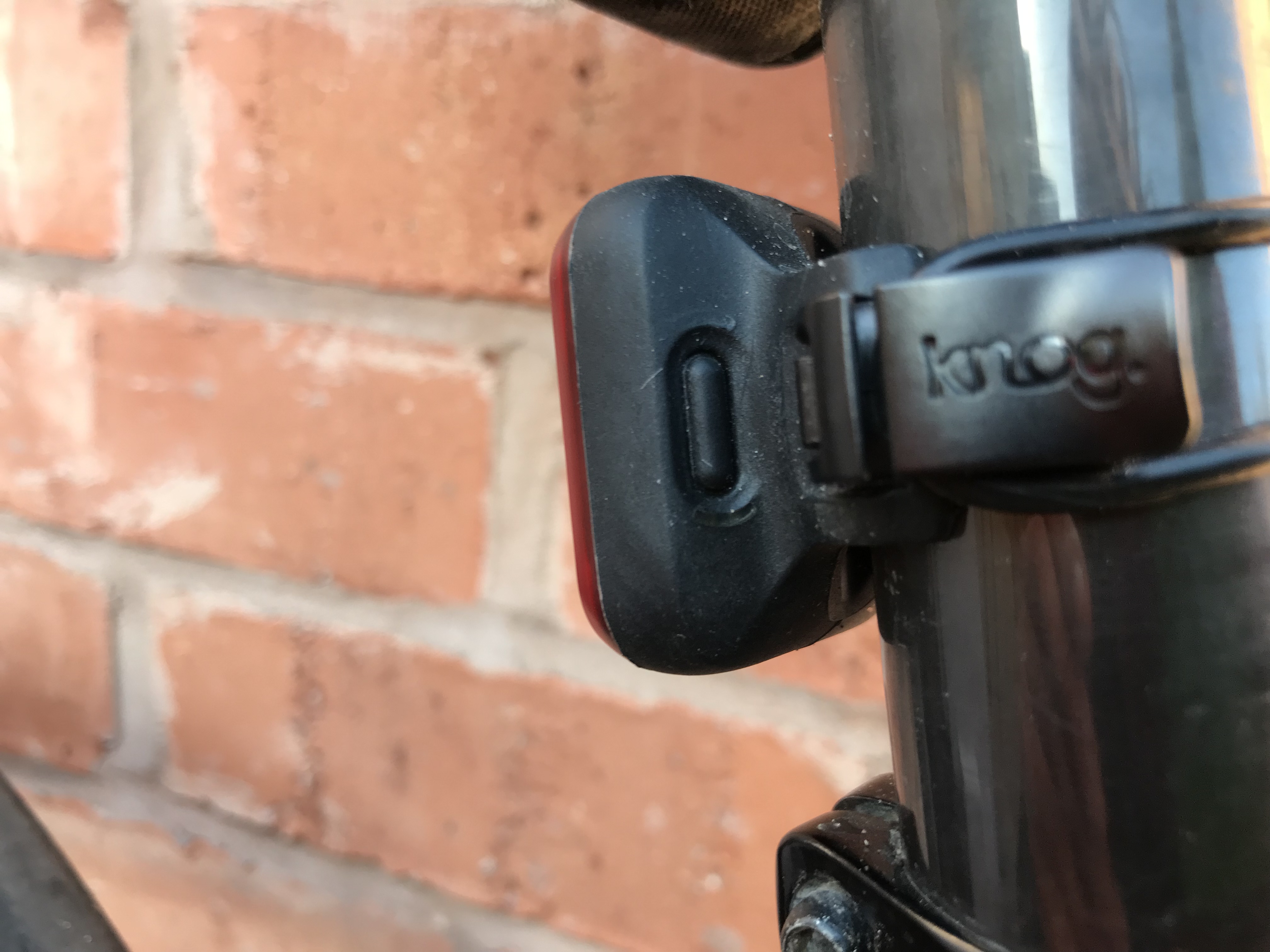
Knog Blinder - the standard version has a side-mounted on/off switch
The on-off switch is a little hidden, but very easy to operate with a long press to switch on/off and a short press to scroll through the different modes. On the standard model it’s on the side which makes it easy to get to. However, on the longer V model it’s at the top which means it can be a bit hidden under your saddle and so you need to jiggle the light to get your fingers to it.
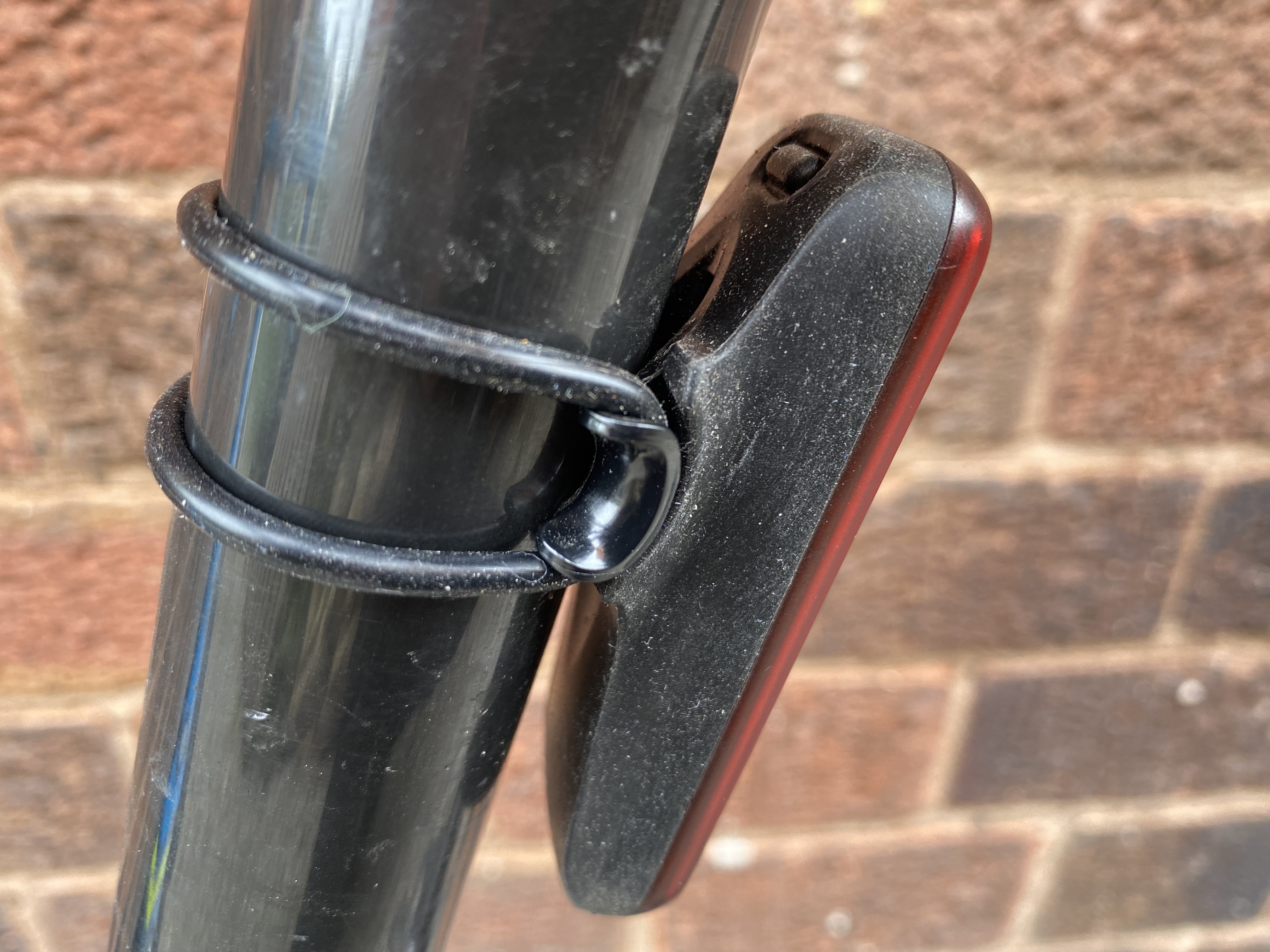
The top mounted on/off switch on the V Blinder is a awkward to access
There are two small indicator lights next to the on/off button which indicate when the battery is low, charging or fully charged. These are quite discrete and I’m not convinced I’d notice them if I wasn’t going looking for them. Certainly either the low battery indicator never came on or I never noticed when it did. On the subject of battery, we found that the run time of the standard Knog on full brightness was in line with Knog’s claimed 4.5hrs.
Knog Blinder rear light: value and conclusion
The Knog Blinder lights are bright and well-designed lights with some nice stand-out features such as an integrated USB-A connector, easy to operate and effective mounting and quirky light patterns. The neatness of the design makes the on/off switch and the battery indicator lights a bit more difficult to use than they should be.
The on/off switch was more accessible on the side of the standard Blinder Square than on the top of the V Bolt Blinder which makes it our preferred version.
At $45.00 / £40.00 (Square) and $50.00 / £45.00 (V Bolt) the Blinders a little more than other high output rear lights such as the Moon's Cerberus rear light ($46.99 / £35.99) and the competitive CatEye ViZ300 ($39.95 / £39.99). But then no other light will give you extra awesomeness from flashing electricity or squares like the Blinder will.
Knog Blinder rear light: specs
- Max lumens: 100
- Visibility at (claimed): 900m (V model), 450m (standard model)
- Max run time: 50hrs (V model), 60hrs (standard)
- Size: 70mm x 25mm (V model), 40mm x 40mm (standard)
- Weight: 42g (V model), 34g (standard model)
- Waterproof: IP67 rating
- Integrated USB A connector (cable-free)
Rachel has been writing about and reviewing bike tech for the last 15 years. Cynical by nature, Rachel never really trusts the marketing hype and prefers to give products a mighty good testing before deciding whether they're worth buying or not.
Rachel's first riding love is mountain biking where she's been European and UK 24hr Champion on more than one occasion. She's not just confined to the trails though and regularly rides - and occasionally races - on gravel and road too.